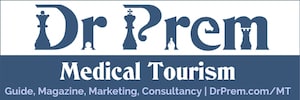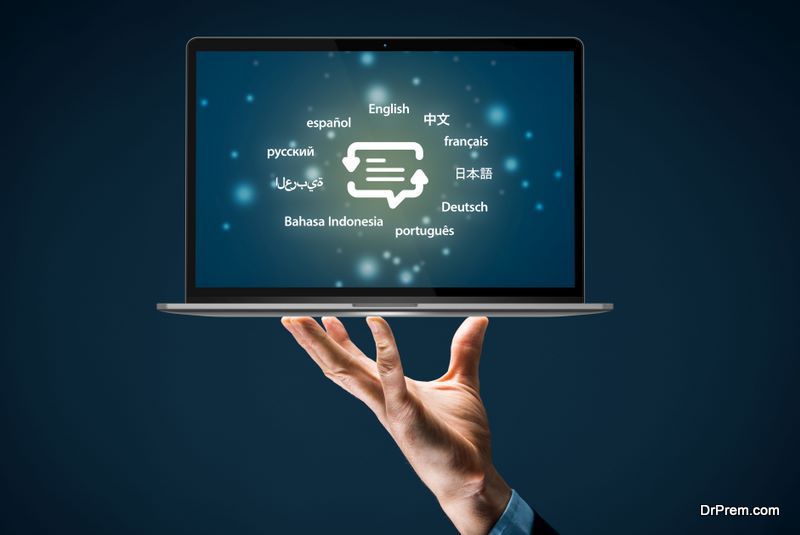[vc_row][vc_column][vc_column_text]A few years back, doctors of a premier hospital in Hyderabad, India successfully carried out complex treatments of a medical tourist by overcoming the language barrier with the help of Google translate tool.
The 58-year-old patient from Uzbekistan with zero knowledge of English and limited resources landed in the hospital for knee replacement surgery. The doctors to their dismay discovered that she was carrying three life-threatening conditions which needed to be addressed first prior to the requested orthopedic surgery. As usual, she didn’t carry any previous medical record save a piece of paper bearing the request.
What ensued after was a 10-day extensive patient-doctor interaction with the ‘Google translate’ where detail technical complications and potential dangers had to be explained to the patient and the family. Thanks to the online translator and dedicated efforts and skill of the medical team that helped her sail smoothly through treatment procedures.
Do online translators have an edge over interpreters?
The above incident once again has put forth the persistent communication problem in medical tourism arising from language differences. Top of the line service providers are taking special efforts in hiring professional interpreters to enhance the patient experience by establishing a smooth communication channel.
Now the million-dollar question is whether online translation tools or machine translators can provide the required support instead of human interpreters. Or will it be wise to rely on translator tools only?
Understanding the difference between medical translation and medical interpretation
Interpretation refers to the real-time action involving in-person transference of communication from one language to another. Whereas translation refers to the documented text translated from one language to another.
In healthcare services, medical interpretation is a sensitive area and any erroneous language interpretation can increase the risk of health damage and complications. Therefore, language interpretation should be done by proficient persons committed to ensuring quality delivery of service.
In healthcare settings, one may need medical translation service or interpreters. Translation is mostly required in documenting:
- Medical prescriptions and physician’s correspondence.
- Patient’s medical records and test reports in another language
- Patient’s medical history in another language.
Vital aspect of interpreters:
- Quality and accuracy of service delivery is crucial since interpretation is a real-time action where the person should be thorough in the source and target languages.
- Medical interpreters should be well-versed with clinical terms and acronyms and be apt in using them properly.
What is the need – medical translator or interpreter?
One should be very specific about this. If there is a need for in-person communication with a physician or specialist in a healthcare facility, an interpreter will be needed. If there is a need to document a medical record in some other language, a translator will be required.
While interpretation is done real-time at a faster pace, there are chances of error (thus the need for highly skilled interpreters) due to the quick reaction time as the patient narrates his/her condition to the physician. Translation happens at a slower pace and is likely to produce error-free outcomes.
The role of trained language interpreters in medical tourism:
Before weighing the pros and cons of human and online translators, it is important to assess the role of the human counterparts in medical tourism and to what extent their service is helping in this sector.
Improper communication results in inadequate information which can be frustrating both for the doctor and the patient. While it may seem that human interpreters only facilitate doctor-patient interaction, in reality, it is something more than that.
The growing trend of medical tourism has shot up patients’ expectations with each patient seeking personal touch in everything.
Accordingly, professional interpreters are aligning themselves to cater to the growing needs by extending their peripheral services. Today, they form an integral part in medical tourism concierge services and are assigned specific responsibilities like:
- Receiving medical travelers at the airport
- Taking care of their accommodation
- Arranging appointments with the doctors
- Looking after the bureaucratic requirements like applying for an extended visa
- Guiding the patient through all the hospital formalities including admission, diagnostic tests and clinical examinations.
- Assisting in all sorts of communication with the doctors and medical attendants and explaining the details of reports and treatment plans not only to the patient but also to those accompanying him/her.
Most importantly, a professional interpreter makes the patient feel at home in an alien land and helps him/her to cope up with the changed environment. Unarguably, they contribute a lot in enhancing the patient experience.
Sharp rise in online translator service:
The year 2017 witnessed a sharp rise in sophisticated language technology with the introduction of Artificial Intelligence, which can be taught any language understandable by man. Translation services were one of the in-demand services last year. Industry-specific translator apps for doctors are likely to come soon.
Global Market Insights predict translation market to touch $1.5 billion by 2024, cheering news for translator makers and app developers and even for Google Translate. Google Translate available free of cost is fast evolving with advanced features. Currently, it can translate 143 billion words per day giving almost error-free translated content and is also helping in translating conversations real-time.
Can machine translators replace the human counterparts?
With due credit to advanced language technology, online or machine translators lack the human touch. No other sector other than healthcare demands such a high level of humanistic touch, which is even more required in medical tourism. Online and machine translators are able to translate words phrase-to-phrase but fail to generate feeling and empathy.
These fail to pick up the non-verbal part of the communication, which is most important. A non-verbal message can be felt in the voice tone, facial expression and body language of the human interpreter.
A cold verbal interaction may break the language barrier but it would fail to develop the doctor-patient rapport. On the other hand, friendly gestures of the interpreter can give a much-relaxed feeling to the patient.
Online translators may not be able to translate the medicine lexicons accurately and may often create confusion. Patients will not understand what exactly has happened to them and remain in utter anxiety.
Barriers in using human translators:
However, online translators can gain precedence over human interpreters in the following situations:
- People with impaired speech and hearing
- Unavailability of professional interpreters, higher hiring costs and time constraints.
- Chances of confidentiality breach while communicating via the third-party translator.
- The doctor-patient rapport can be affected by human interpreters where the patient gets excluded from the interaction.
Online translators can be saviors in hours of need:
Although large healthcare facilities have provisions for human interpreters but they may not be proficient in every important global languages. For example, it may not be easy to find interpreters expert in translating from Arabic, French and Spanish or Russian language. This somewhat explains the growing need of interpreters in medical tourism.
In dire needs, you might want to jump to freelancers such as one you find as online translators on upwork or other freelancer website, but a non-meticulous planning can go very wrong. If you find a good freelancer it can be the savior. At least the basic purpose can be served as what has happened in the event narrated at the beginning. Where personal touch matters so much in medical tourism, replacing interpreters is still unthinkable. But it may also be wise to have provisions for advanced online translators which can be used in few cases.
Any alternative to face-to-face interaction should be aimed at enhanced treatment outcomes. Considering the situation of choice and availability, it is important to check whether the human interpreters would be more effective or alternative translator tools should be used.[/vc_column_text][/vc_column][/vc_row]












